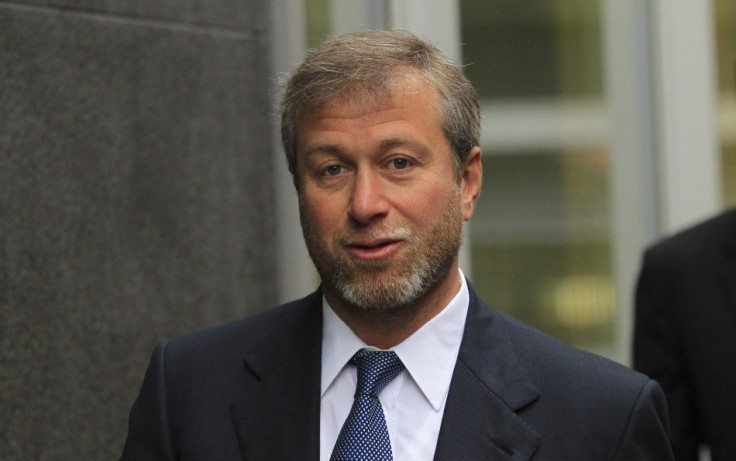Mysterious Billionaire Roman Abramovich's Court Victory Sheds Light On Russia's Underworld

Roman Abramovich looks smug.
It's not because the Russian business tycoon just won a court case against a former business partner, saving himself over $5.6 billion. It's just the way he looks all the time, or at least in front of photographers. That sleepy-eyed half-grin seems as much an Abramovich trademark as the ever-constant salt-and-pepper scruff on his chin.
That must be the kind of self-assuredness that comes from a lifetime of near-constant success. This 45-year-old billionaire has a history of winning -- in politics, in business, in sports, and now in court.
The London Commercial Court case that officially ended on Friday was brought by rival oligarch Boris Berezovsky, 65. He alleged that Abramovich had coerced him into selling his shares in Sibneft, the giant Russian oil company that the two men controlled jointly during the 1990s.
The case was a messy one due to the shady nature of Russian business practices during that time period. Abramovich and Berezovsky made their deals in verbal agreements, not signed documents. This presented problems for Judge Elizabeth Gloster, who had to rely on witness accounts and found them decidedly lacking.
She had some very strong words for Berezovsky, writing in her summary that he was "an unimpressive, and inherently unreliable, witness who regarded truth as a transitory, flexible concept, which could be molded to suit his current purposes."
Harsh words for a man who was on top of the world only 15 years ago. In those days, Berezovsky had useful political connections. He was a Kremlin heavyweight due to his personal relationship with then-President Boris Yeltsin and, later, his successor Vladimir Putin.
In their joint stewardship of Sibneft, it seems that Abramovich handled the business end of the enterprise and Berezovsky was compensated for providing political cover.
But it all fell apart in 2000 when Berezovsky was a deputy in the Duma, Russia's parliamentary body. He publicly took issue with Putin's proposal for constitutional reforms that, Berezovsky argued, constituted a "threat to Russia's territorial integrity and democracy."
He resigned from the Duma in July of that year and left the country in 2001. And he has never returned, especially since he was indicted in absentia for fiscal fraud. It was during this period of unraveling that Berezovsky sold his shares to Abramovich at dirt-cheap prices -- and Friday's verdict means that, barring a successful appeal, he'll never recoup the true value of those assets.
Abramovich, on the other hand, is constantly coming out on top.
He made his fortune in the 1990s, when Russia was privatizing the economy after the collapse of the Soviet Union. He was a major player -- some would call him the ultimate victor -- in the country's so-called "aluminum wars," which broke out as businessmen fought for control over smelting and mining operations in Russia and all over the world. Underhanded dealings, mob involvement and deadly violence turned the battle into a national drama.
Through a mix of business acumen and savvy bribery -- and with Berezovsky's help -- Abramovich was able to sidestep the long arm of the law and hold on to his assets in times of turmoil.
Abramovich conspired with Berezovsky to purchase controlling interest in Sibneft in 1995, for a tiny fraction of its market value. And when Berezovsky was out of the picture five years later, Abramovich grew even richer.
Today, he has a net worth of nearly $14 billion, according to the Bloomberg Billionaires Index.
Abramovich is a winner on the soccer pitch, too. He owns London's Chelsea Football Club, which won the UEFA Champions League last year - the top prize in European soccer.
And then there's politics. Abramovich won an Order of Honour award from Putin for his 2000-2008 tenure as the governor of a remote federal subject called Chukotka -- he threw over a billion dollars of his own money at the region, vastly improving standards of living there.
Today Abramovich leads an obscenely fabulous lifestyle. He is a sponsor of the arts. He owns limousines, helicopters and multi-million dollar homes all over the world. His yacht collection has been referred to as a navy. The father of six has been married and divorced twice; he now lives with a gorgeous socialite, philanthropist and art enthusiast named Dasha Zhukova.
It is this story of excess -- not the potential economic ramifications of Berzovsky's lawsuit -- that drew worldwide attention as the landmark case drew to a close.
Historical intrigue helped, too. The spotty records of financial transactions, the political ties and underhanded deals -- it was all the drama of post-Soviet Russia, distilled more than two decades later into a public battle between Berezovsky, a man on a long losing streak, and Abramovich, the mysterious golden boy who still has shady ties to Putin.
And in the end, nothing has changed. A triumphant Abramovich, who did not bother to show up for the verdict in person, released a statement expressing his approval.
"Mr Abramovich has always had great faith in the fairness of the English legal system and is both pleased and grateful for today's outcome," it said.
Berezovsky was disappointed, but dismissive.
"Life is life," he said before leaving the courthouse empty-handed.
© Copyright IBTimes 2025. All rights reserved.






















